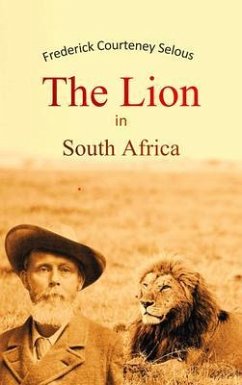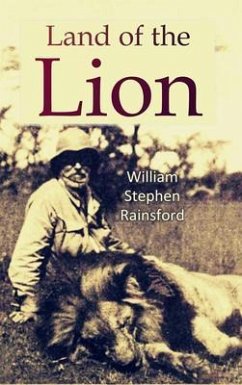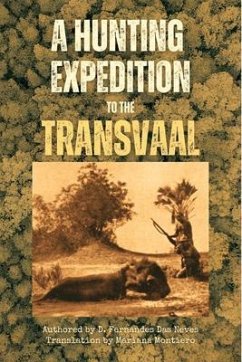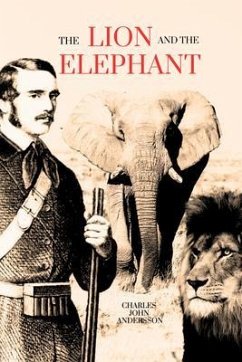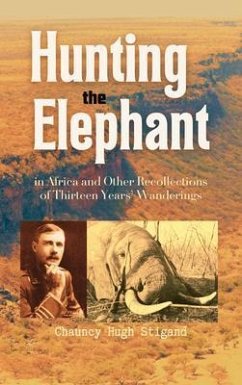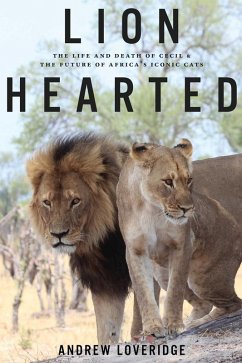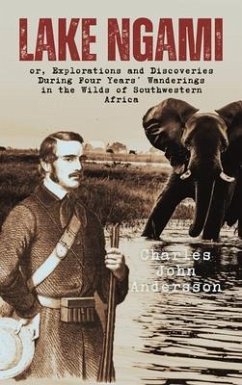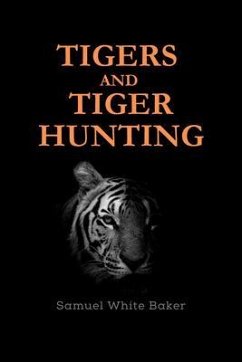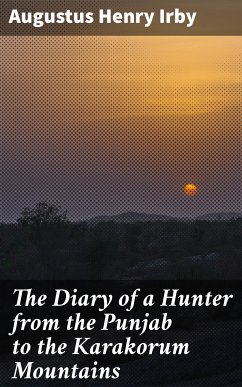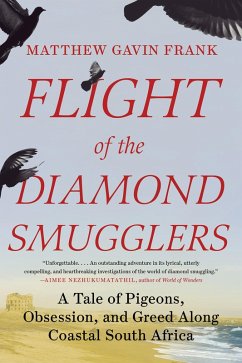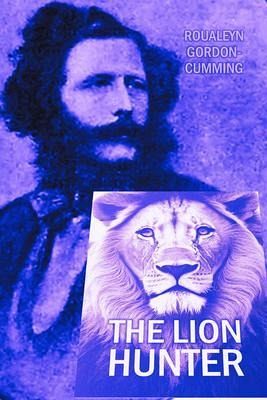
The Lion Hunter (eBook, ePUB)

PAYBACK Punkte
2 °P sammeln!
"Described as...the greatest hunter of his day, Gordon-Cumming arrived at the Cape in 1843...hunted in Africa for five years until 1849, later writing about his exploits in his bestselling autobiography." -When the Last Lion Roars (2018)"Roualeyn Gordon Cumming gave a terrible description of a night attack upon his camp, when a lion bounded over the thorn fence." -Samuel Baker, Wild Beasts and Their Ways"There was a demand for books, such as Roualeyn George Gordon Cumming's...which briefly outsold Dickens...described how he had been mauled by a lion during a hunt with Tswana tribesmen." -Lion ...
"Described as...the greatest hunter of his day, Gordon-Cumming arrived at the Cape in 1843...hunted in Africa for five years until 1849, later writing about his exploits in his bestselling autobiography." -When the Last Lion Roars (2018)
"Roualeyn Gordon Cumming gave a terrible description of a night attack upon his camp, when a lion bounded over the thorn fence." -Samuel Baker, Wild Beasts and Their Ways
"There was a demand for books, such as Roualeyn George Gordon Cumming's...which briefly outsold Dickens...described how he had been mauled by a lion during a hunt with Tswana tribesmen." -Lion (2010)
"Swashbuckling Scottish adventurer and self-proclaimed lion hunter, Roualeyn Gordon-Cumming...his...enthusiasm for the hunt bordered on the lunatic." -Wild Karoo (2018)
Why is Roualeyn Gordon-Cumming considered by many of his hunting peers to be the greatest African big game hunter of his time?
In 1915, a book containing the most interesting and engaging writings on African big game hunting by Roualeyn George Gordon-Cumming was published posthumously in 1915 under the title of "The Lion Hunter." It is this book that has been republished here at a low price for the convenience of the interested reader.
Among the mighty hunters of this Arcadian epoch none achieved greater celebrity than Roualeyn Gordon-Cumming, subsequently known everywhere as "the lion hunter." After five years of continuous forays amongst the big game of South Africa, which led him into regions never before entered by white men, this intrepid and persistent Highlander freighted a ship with his trophies of the chase, made of them a museum that was famous throughout England, and became the social lion of the season. He published a narrative of his adventures that had an immense sale wherever English was read.
Roualeyn George Gordon-Cumming (1820 -1866) was a Scottish traveller and sportsman, known as the "lion hunter." From his early years he was distinguished by his passion for sport. He was educated at Eton, England, and at eighteen joined the East India Company's service as a cornet in the Madras Light Cavalry.
In 1843 he joined the Cape Mounted Rifles, but for the sake of absolute freedom sold out at the end of the year and with an ox wagon and a few native followers set out for the interior of Africa. He hunted chiefly in Bechuanaland and the valley of the Limpopo River, regions then swarming with big game.
The story of his exploits is vividly told in his autobiography, later excerpted and republished as "The Lion Hunter." Of this volume, received at first with incredulity by stay-at-home critics, David Livingstone, who furnished Gordon-Cumming with most of his native guides, wrote: "I have no hesitation in saying that Mr. Cumming's book conveys a truthful idea of South Africa."
"Roualeyn Gordon Cumming gave a terrible description of a night attack upon his camp, when a lion bounded over the thorn fence." -Samuel Baker, Wild Beasts and Their Ways
"There was a demand for books, such as Roualeyn George Gordon Cumming's...which briefly outsold Dickens...described how he had been mauled by a lion during a hunt with Tswana tribesmen." -Lion (2010)
"Swashbuckling Scottish adventurer and self-proclaimed lion hunter, Roualeyn Gordon-Cumming...his...enthusiasm for the hunt bordered on the lunatic." -Wild Karoo (2018)
Why is Roualeyn Gordon-Cumming considered by many of his hunting peers to be the greatest African big game hunter of his time?
In 1915, a book containing the most interesting and engaging writings on African big game hunting by Roualeyn George Gordon-Cumming was published posthumously in 1915 under the title of "The Lion Hunter." It is this book that has been republished here at a low price for the convenience of the interested reader.
Among the mighty hunters of this Arcadian epoch none achieved greater celebrity than Roualeyn Gordon-Cumming, subsequently known everywhere as "the lion hunter." After five years of continuous forays amongst the big game of South Africa, which led him into regions never before entered by white men, this intrepid and persistent Highlander freighted a ship with his trophies of the chase, made of them a museum that was famous throughout England, and became the social lion of the season. He published a narrative of his adventures that had an immense sale wherever English was read.
Roualeyn George Gordon-Cumming (1820 -1866) was a Scottish traveller and sportsman, known as the "lion hunter." From his early years he was distinguished by his passion for sport. He was educated at Eton, England, and at eighteen joined the East India Company's service as a cornet in the Madras Light Cavalry.
In 1843 he joined the Cape Mounted Rifles, but for the sake of absolute freedom sold out at the end of the year and with an ox wagon and a few native followers set out for the interior of Africa. He hunted chiefly in Bechuanaland and the valley of the Limpopo River, regions then swarming with big game.
The story of his exploits is vividly told in his autobiography, later excerpted and republished as "The Lion Hunter." Of this volume, received at first with incredulity by stay-at-home critics, David Livingstone, who furnished Gordon-Cumming with most of his native guides, wrote: "I have no hesitation in saying that Mr. Cumming's book conveys a truthful idea of South Africa."
Dieser Download kann aus rechtlichen Gründen nur mit Rechnungsadresse in A, D ausgeliefert werden.




